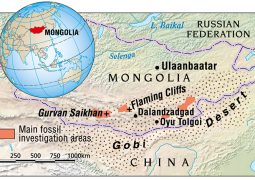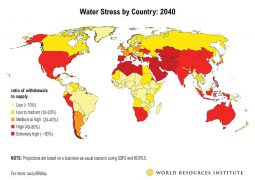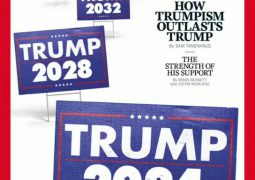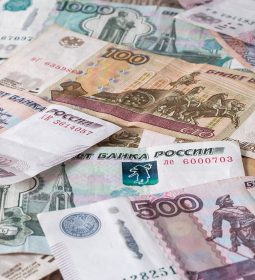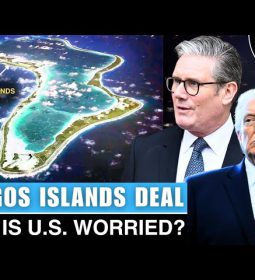Brits drugged China in 19th century into abyss: Is now Beijings’ turn to pay back? Trump camp says China is ‘attacking’ U.S. with fentanyl.

Trump camp says China is ‘attacking’ U.S. with fentanyl. They aim to fight back
REUTERS/Photo illustration/Staff
President Joe Biden‘s fentanyl diplomacy with China is under scrutiny as President-elect Donald Trump’s team seeks a harder line to stop the flow of Chinese-made chemicals powering America’s epidemic. Tariffs are just part of the discussion.
Donald Trump’s return to power portends a shakeup in the U.S. approach to addressing America’s fentanyl crisis and what counternarcotics officials say is the biggest obstacle to solving it: China.

IN THIS SERIES
Part 1: With $3,600 and Wi-Fi, we bought everything needed to make fentanyl
Graphic: Fentanyl’s deadly chemistry: How rogue labs make opioids
Part 2: How fentanyl traffickers are exploiting a U.S. trade law to kill Americans
Graphic: The fentanyl funnel: How narcos sneak deadly chemicals through U.S.
Part 4: The shadowy ‘brokers’ helping Mexico’s cartels smuggle fentanyl chemicals from China
Part 5: A fentanyl antidote is saving lives. But it isn’t ending the fentanyl crisis
Advisors to the Republican president-elect’s transition team are advocating a much more aggressive posture towards Beijing over fentanyl than the one adopted by Democratic incumbent Joe Biden.
Already, Trump is signaling that to stem the flow of narcotics he will resort to his weapon of choice: tariffs.
In posts on Monday on Truth Social, his social network, he promised additional 10% tariffs on goods from China, and 25% duties on merchandise from Mexico and Canada. Trump claimed these nations have not taken strong enough action to stop illicit drugs, particularly fentanyl, from entering the United States. He said his many talks with China about stopping the flow of drugs were “to no avail.”
Trump’s advisors are likewise pushing for U.S. sanctions on Chinese financial institutions allegedly linked to the fentanyl trade. Trump will be the ultimate decider.
China is the dominant source of chemical precursors used by Mexican cartels to produce fentanyl, while Chinese money launderers have become key players in the international drug trade, U.S. authorities say. The Biden administration has been negotiating with Beijing for the past year to crack down on both. Diplomacy has yielded promising but modest results so far. That has frustrated some U.S. security officials and China hawks who say the U.S. must ratchet up the pressure to get Beijing’s leadership to act.
“When you don’t do those things, then you’re a doormat,” said Steve Yates, a China expert and former national security official in the George W. Bush administration. Yates, who is not formally involved with the president-elect’s transition team, has advised Trump’s circle on fentanyl policy. Over the past decade, more than 400,000 Americans have died of synthetic opioid overdoses, including Yates’ daughter, who died last year.
Yates and others counseling the Trump team say one of the quickest and surest ways for Washington to get Beijing’s attention is to sanction Chinese banks doing business with money launderers and corrupt chemical sellers.
Foreign banks hit with U.S. sanctions can’t engage with American financial institutions or access the U.S. dollar, severely curtailing their ability to transact business internationally, according to Edward Fishman, a sanctions expert at Columbia University. He said Washington can also freeze U.S. assets held in sanctioned banks.
It’s a powerful weapon that has been wielded against financial institutions in countries of some U.S. adversaries such as Iran and Russia, but never against banks in Mexico and China tied to drug trafficking, according to David Asher, a top former U.S. anti-money laundering official who helped target the finances of the Islamic State terrorist group.
“You need to hit all the bankers. It’s sort of basic,” said Asher, now a senior fellow at the Hudson Institute, a conservative think tank in Washington.
Asher formulated a preliminary plan circulating in Trump transition circles that calls for a whole-of-government task force incorporating all aspects of U.S. diplomatic, law enforcement and financial power to address the fentanyl crisis.
Parts of the plan, shared with Reuters, call for criminal indictments of major Chinese and Mexican financial institutions allegedly laundering money for the cartels; mass sanctions on Chinese companies and people implicated in the fentanyl trade; beefed-up bounties on most-wanted traffickers; cyber warfare against Mexican cartels; and a U.S. intelligence agency focus on fentanyl that’s commensurate with the war on terrorist organizations.

A spokesperson for the Chinese Embassy in Washington cited numerous steps that China has taken to prevent illegal production, trafficking and abuse of fentanyl since talks with the Biden administration resumed. The embassy warned that China would respond if the U.S. takes a more combative posture.
“Sanctions, smears and slander against China will only undermine the foundation of China-U.S. counternarcotics cooperation,” the embassy said in a statement. “China firmly opposes the U.S.’s arbitrary use of unilateral sanctions and will resolutely safeguard its legitimate rights and interests.”
Hostility toward China’s government has taken root on Capitol Hill, with both Democrats and Republicans urging trade actions to punish Beijing for what some believe is a deliberate effort to destabilize the United States with fentanyl.
Trump’s promised 10% tariffs on China over narcotics might just be an opening volley. Howard Lutnick, Trump’s pick to run the Commerce Department and oversee the Office of the U.S. Trade Representative, said in a podcast interview in October that “China is attacking America” with fentanyl and suggested that Trump might levy tariffs as high as 200% on China.
On the campaign trail, Trump vowed to designate Mexico’s drug cartels as terrorist groups and harness the U.S. military to destroy them.
But it’s not clear if Trump is willing to move beyond tariffs on Chinese goods and take stronger actions such as hitting Chinese banks with sanctions over fentanyl.
Trump’s past disputes with Beijing have centered mostly on China’s huge trade surplus, not synthetic opioids. Trump expressed admiration, even love, for Chinese President Xi Jinping throughout much of his first term, even as U.S. overdose fatalities soared.
Trump transition team spokeswoman Karoline Leavitt, asked by Reuters if his administration’s increased pressure on China over fentanyl might include bank sanctions, said Americans re-elected Trump “to lead our country and restore peace through strength around the world.” She said Trump would “take the necessary action to do just that” when he returns to the White House.
A Reuters investigation into the global fentanyl supply chain has shown how easy it is to purchase precursors online from Chinese sellers, who ship them by air to the U.S. disguised as gadgets and other low-cost merchandise. These boxes typically sail through customs duty-free amid a sea of other Chinese imports, and are routed by traffickers to Mexican drug labs. Bipartisan sentiment is growing in Washington to end China’s use of this streamlined entry channel.
There is growing consensus in Republican circles close to Trump that Beijing has exploited, even engineered, the synthetic opioid epidemic to harm Americans. They point to a bipartisan report issued in April by the House of Representatives’ select committee on China that calls that nation the “ultimate geographic source” of the fentanyl crisis. The report alleges that Beijing provides tax rebates to Chinese companies that export fentanyl chemicals, and that it allows groups linked to drug trafficking to operate as long as their efforts are focused abroad.

“The root cause of the drug epidemic in the U.S. lies in the U.S. itself.”
Mao Ning,
spokeswoman for China’s foreign ministry
Beijing has repeatedly dismissed the claims in that report. The Chinese Embassy in its statement said “the idea of China using fentanyl as a means to strategically weaken the U.S. runs completely counter to facts and reality.”
The Biden White House agrees with China on the rebate issue. Beijing does provide tax breaks for chemicals sold abroad. But there’s no evidence that China is subsidizing large-scale exports of illicit fentanyl precursors as alleged in the congressional report, a senior administration official told Reuters.
“We’ve simply been unable to corroborate those claims,” the official said. “And in fact, to the contrary, we have looked closely at it and we think that they are faulty.” The official said their Chinese counterparts were cooperating in good faith in counternarcotics talks.
China has some of the world’s toughest domestic drug laws – a byproduct of the 19th century Opium Wars, when China was forced to legalize opium use under duress from the militarily superior West, which was profiting from the trade. Mass addiction and political upheaval ensued, leading to what is known as the “Century of Humiliation.” Lifting the country from that nadir was one of the Chinese Communist Party’s proudest achievements, and China has portrayed itself globally as an anti-drugs crusader.
Chinese officials note they have tightened controls over many types of precursor chemicals. They have said repeatedly that the fentanyl epidemic is a catastrophe of America’s own making, and that the U.S. should focus on curbing demand at home instead of blaming outsiders.
“The root cause of the drug epidemic in the U.S. lies in the U.S. itself,” Mao Ning, a Ministry of Foreign Affairs spokeswoman, said in Beijing last month.
What’s clear is that Biden’s measured approach to engagement with Beijing on counternarcotics is out of favor not only with those advising Trump, but also among some current and former U.S. officials familiar with the U.S.-China discussions.
Those officials say China, while helpful in some areas, has slow-walked Washington’s biggest anti-narcotics priorities and signaled it’s looking to extract strategic concessions in return for doing more. Responding to a Chinese demand, President Joe Biden lifted trade sanctions on a Chinese government institute in November 2023 to lure Beijing back to the table for fentanyl talks during a particularly rocky stretch in the bilateral relationship.
“China sees everything through the lens of leverage. Fentanyl is no different,” one senior U.S. official told Reuters.
For this report, Reuters spoke with nearly four dozen sources from the United States, China and international bodies such as the United Nations. They include people directly involved in the U.S.-China fentanyl talks, diplomats, law enforcement officials, drug policy experts, lawmakers and government aides.
The reporting provides the first window into the U.S.-China fentanyl negotiations. It also reveals the chasm separating the two sides; the limitations of Biden’s strategy; and the potential risks the U.S. faces under Trump if he pursues a harder line.

FRAYING TIES
Fentanyl was developed decades ago as an anesthetic and is still widely used in hospitals to ease surgical pain. It first showed up on U.S. streets in the 1970s as “China White,” the nickname for heroin mixed with fentanyl.
The explosion came in the 2010s after the U.S. restricted access to the prescription painkiller oxycodone due to widespread abuse. Traffickers filled the void with counterfeit pain pills containing fentanyl, most of them made in China, according to U.S. authorities.
China’s role in that illicit business shifted abruptly in May 2019 when Beijing began tightly controlling all fentanyl-related substances, effectively ending exports of the finished product. It looked like a diplomatic breakthrough for Trump, who had criticized these shipments in his first term.
Yet China remained a key player in the fentanyl trade despite the 2019 crackdown. Its chemical makers simply pivoted to exporting fentanyl ingredients to Mexico’s cartels, who took over the manufacturing of the synthetic opioid, Mexican and U.S. authorities say. Mexico, not China, became the face of the scourge, even as Chinese chemicals remained its heart.
“That’s when the big paradigm shift occurred,” said Mike Brown, a former special agent with the U.S. Drug Enforcement Administration (DEA) who now hosts “The Opioid Matrix” podcast focusing on the illegal drug supply chain.
Trump’s successor, Biden, clashed with China over a host of issues, including U.S. microchip export controls aimed at slowing China’s military, and the February 2023 shootdown of a suspected Chinese spy balloon that drifted across the continental United States.
China froze vital lines of communications in a variety of areas, including counternarcotics, in August 2022 after then-U.S. House Speaker Nancy Pelosi visited Taiwan. By early 2023, China’s Xi accused Washington of “all-round containment to suppress China.”
Later that year, the White House added China to a list of nations it considers major drug-producing or transit countries. The move rankled China’s leaders, who viewed it as a stain on the country’s global reputation. They’ve been pressing for removal ever since.
But away from the spotlight, both sides had reasons to seek rapprochement. For Xi, legitimacy at home depends on delivering prosperity. China’s economy was, and still is, struggling, and the U.S is the single-largest buyer of its exports.
For the Biden administration, the balloon episode underscored the potential risk for a black swan event to trigger conflict between two nuclear superpowers. In addition, Biden at the time still harbored aspirations to run for a second term. The alarming number of U.S. fentanyl overdose deaths on his watch, more than 76,000 in 2022 alone, was a liability.
A reset with China was in order. Arrangements were set for Xi and Biden to meet in November 2023 near San Francisco.
As part of the thaw, Xi invited a bipartisan group of six U.S. senators to meet with him the month before the presidential confab. Fentanyl was one of the main topics of discussion in that 80-minute gathering in Beijing, recalled Senator Bill Cassidy, a Republican from Louisiana who attended.
Xi brought up Trump-era U.S. sanctions against a Chinese forensics institute as a stumbling block to resuming counternarcotics talks. While Xi did not explicitly say so, Cassidy said the subtext was clear: “Remove the sanctions if you want to collaborate.”
Biden did just that a day after his Nov. 15, 2023, meeting with Xi in California, paving the way for anti-drug cooperation to restart.

SMALL STEPS
Counternarcotics discussions resumed in late January 2024, when a U.S. team of officials from the White House and the departments of Justice, State, Treasury and Homeland Security visited Beijing.
China brought senior money laundering experts and representatives of financial institutions, including the People’s Bank of China, according to Todd Robinson, the State Department’s point man on international anti-narcotics issues, who attended.
Five months later, Chinese authorities, acting on U.S. intelligence, arrested in China a suspected member of a Chinese syndicate that allegedly laundered drug money for Mexico’s Sinaloa Cartel. It was a rare example of legal cooperation between the two nations.
Law enforcement officials from both countries now meet regularly to discuss cases. American officials involved in those talks say they enjoy access to Chinese officials that’s the envy of most Western missions.

The U.S. and China have also initiated quarterly online meetings between scientists to share information on emerging drug threats, a development both U.S. and Chinese officials said was significant.
Beijing this year also made good on a pledge to regulate three major fentanyl-making chemicals – 4-AP, 1-boc-4-AP and norfentanyl – as required under its obligations as a member of a United Nations commission engaging countries to battle narcotics collectively.
Even before the U.S. task force landed in Beijing, China made some goodwill offerings: Shortly after the Xi-Biden meeting in California, China’s government sent a notice to domestic chemical makers warning them that exporting chemicals that could be used to make illicit drugs carried risks of surveillance and prosecution abroad.
Chinese police also carried out a sweep of about 5,000 chemical brokers and other companies peddling precursors, shutting down the worst offenders and “educating” others. According to state media, China also closed down 14 chemical websites and over 1,000 online shops.
No one was arrested in that crackdown, however. Shuttered online sellers of fentanyl ingredients can quickly get back up and running under different names, previous Reuters reporting showed.
Still, some U.S. officials saw all those gestures as a good start, including the senior Biden administration official who said there’s no evidence that Beijing’s tax rebates on chemical exports amount to state policy to weaponize fentanyl.
“The end goal is to stop the flow of precursor chemicals,” the official said. “We’re not close to being there yet. But we have made important steps, and each one of those steps will build on each other.”

BIG DIVIDE
Other U.S. officials described U.S.-China progress on fentanyl as halting at best and said China’s cooperation is largely performative. They said a few small wins can’t paper over the chasm that exists between the two sides.
China rejects Washington’s assertion that it’s the world’s No. 1 source of fentanyl precursors. This despite at least a dozen U.S. indictments of Chinese suppliers since mid-2023, and Reuters interviews with Mexican producers, who said key chemicals they need come almost exclusively from China. Beijing’s steadfast denial is “absurd” and “an attempt to bend reality,” said Cassidy, the Louisiana senator.
The U.S. has pressed China to require its chemical sector to vet customers and better monitor where their exports are going.
“We really want them to have their industries know who they’re selling to, and do a better job of telling the world who’s getting these chemicals on the other end,” said the State Department’s Robinson, who is assistant secretary for the Bureau of International Narcotics and Law Enforcement Affairs.
China has resisted. Tsang Wai-hung, an official with the Chinese Narcotics Control Commission, said it’s the responsibility of importing countries – not Chinese chemical companies – to suss out suspect buyers.
In addition, many chemicals used to make synthetic opioids also have an array of legal uses. Beijing is wary that banning or regulating too many of these products could hamper the growth of China’s massive chemical industry.
“There has to be a balanced approach,” Tsang told Reuters in March at a United Nations anti-narcotics conference in Vienna, warning that “excessive” action “will damage the national economy.”

Law enforcement collaboration is another hurdle.
U.S. law enforcement officials working with the Chinese on fentanyl described their gatherings in recent months as cordial, but said the urgency is all from the American side. A Homeland Security official who has attended meetings with China’s Ministry of Public Security said information flows largely one way. He said U.S. authorities have provided China’s security apparatus with solid leads and evidence on criminal suspects to pursue in China, while receiving “table scraps” in return to help with U.S investigations.
Another American law enforcement official said “it’s like feeding info into a black box.”
A Chinese official said China’s authorities appreciate the tips, but complained that U.S. material was often thin and stale. “Some intelligence happened two or three years ago – it’s of no value to start this kind of investigation,” the official said.
Above all, China cannot appear to be taking orders from Washington, particularly in the area of narcotics. Some historians say the Opium Wars helped shape draconian drug laws in today’s China, where convicted dealers face capital punishment.
This period has also influenced the nation’s quest for military, economic and technological superiority over the West, so as never again to be humiliated by foreign powers, said Hang Xing, an associate professor in the Department of Chinese History and Culture at The Hong Kong Polytechnic University.
“Being forced to legalize opium use at gunpoint, I think that’s pretty traumatic,” Hang said. “It’s left a very bitter memory, especially, it’s been taken up as a message of present day Chinese nationalism.”
TALKING TOUGH
In Peru this month at the Asia-Pacific Economic Cooperation forum, Xi met with the outgoing Biden one last time.
Xi said the pair had gotten bilateral relations back on track, resulting in “positive achievements,” including on counternarcotics and law enforcement. Still, he warned that “containing China is unwise, unacceptable and bound to fail,” according to a Chinese readout of the meeting.
Biden in his own remarks said that dialogue with China is what it takes to prevent “miscalculations” that could lead to conflict.
Supporters of Biden’s approach to engagement note that synthetic opioid deaths dropped by nearly 19% in the 12 months ending June 30, 2024, from the same period a year earlier, according to CDC data. Public health experts believe some of that drop is due to the administration making overdose-reversal medication widely accessible for street use.
Biden administration officials say the U.S. should continue expanding such treatments at home, while patiently engaging China diplomatically abroad. The new administration should anticipate that an aggressive approach might push China to curtail some or all of the exchanges currently in place, a State Department official said. “If you try something else, the cooperation we have right now will probably disappear,” the official said.
Sanctioning major Chinese financial institutions could also disrupt the global economy, given China’s central role in international commerce.
“You have to think about what the impact would be on the financial system of sanctioning a super-large bank, one that’s very connected to global trade,” another State Department official said.
But people advising the Trump transition team, including some under consideration for posts in his administration, told Reuters the moment is ripe for a new approach to China over the fentanyl crisis, one involving more stick and less carrot.
Several said Beijing’s 2019 ban on exports of finished fentanyl shows that it’s capable of cracking down when it wants to. They said it defies belief that China, an authoritarian state with extensive police surveillance, can’t rein in Chinese money launderers and chemical sellers fueling an illicit trade that has wreaked havoc on U.S. communities nationwide.

“It’s blatantly obvious that it’s drug warfare, and it is intentional,” said a former Department of Justice official familiar with conversations in Trump’s policy circles. “This moment is the breakpoint. Americans are fed up.”
Derek Maltz, a former senior DEA official who is close to Tom Homan, Trump’s pick to carry out mass deportations as the new “border czar,” said he’s confident the new administration intends to pursue a similarly aggressive strategy for fentanyl.
Both China and Mexico will be targeted, Maltz said, though by different means. With China, “it’ll be much more with finesse, with diplomacy, with sanctions, with really focused task force actions,” he said. “But with Mexican cartels, ‘shock and awe’ is the best way to describe it. They have no idea what’s coming their way.”
It’s not clear if the U.S. under Trump would launch such an offensive inside Mexico, a neighbor and ally, without cooperation from President Claudia Sheinbaum’s government. Several U.S. sources in Trump circles told Reuters they want to work with Mexico, but hinted at unilateral action if Mexico City is reluctant. Previous U.S.-backed efforts by Mexico to wage all-out war on its drug gangs convulsed that country in violence, while doing little to stop the northward flow of narcotics.
Mexico’s Foreign Ministry said the country’s government would work with Washington on security issues. But it dismissed as “absurd” the notion of labeling drug cartels as terrorist groups, saying they’re motivated by profits rather than politics or ideology.
The ministry also pushed back hard on the prospect of the U.S. taking unilateral action against criminal gangs on Mexican soil. Mexico “will not accept intrusion on its sovereignty or into its territory,” the statement said. “There will be cooperation but not subordination.”
Yates, the former White House official under Bush, said “decisive and provocative” action against the cartels would be noticed by Chinese organized crime groups, who might curb their own behavior.
But even fans of the get-tough approach say there’s no guarantee that Trump will follow through. Trump signaled on the campaign trail that tariffs and border security are his top priorities.
Asher, the money laundering expert, said ultimately making a dent in the crisis would require Washington to get serious about a coordinated, top-down strategy to hold both the cartels and the Chinese government to account. That’s something he said successive administrations have failed to do, including during Trump’s first term.
“The Chinese always got a pass,” Asher said. “And they still get a pass.”
A Reuters Investigation
Fentanyl Express
Part 1: With $3,600 and Wi-Fi, we bought everything needed to make fentanyl.
Graphic: Fentanyl’s deadly chemistry: How rogue labs make opioids
–
Part 2: How fentanyl traffickers are exploiting a U.S. trade law to kill Americans
Graphic: The fentanyl funnel: How narcos sneak deadly chemicals through the U.S.
–
Part 3: Trump camp says China is ‘attacking’ U.S. with fentanyl. They aim to fight back
–
Part 4: The shadowy ‘brokers’ helping Mexico’s cartels smuggle fentanyl chemicals from China
–
Part 5: A fentanyl antidote is saving lives. But it isn’t ending the fentanyl crisis
- Previous Xi visits to PLA garrison in Macao, US gives $582 mln. military aid to Taiwan on top of $567 aid in September
- Next Aftermath of Magdeburg horror: After fall of Syria – is Saudies getting pressured, of just AfD squized in internal politics









